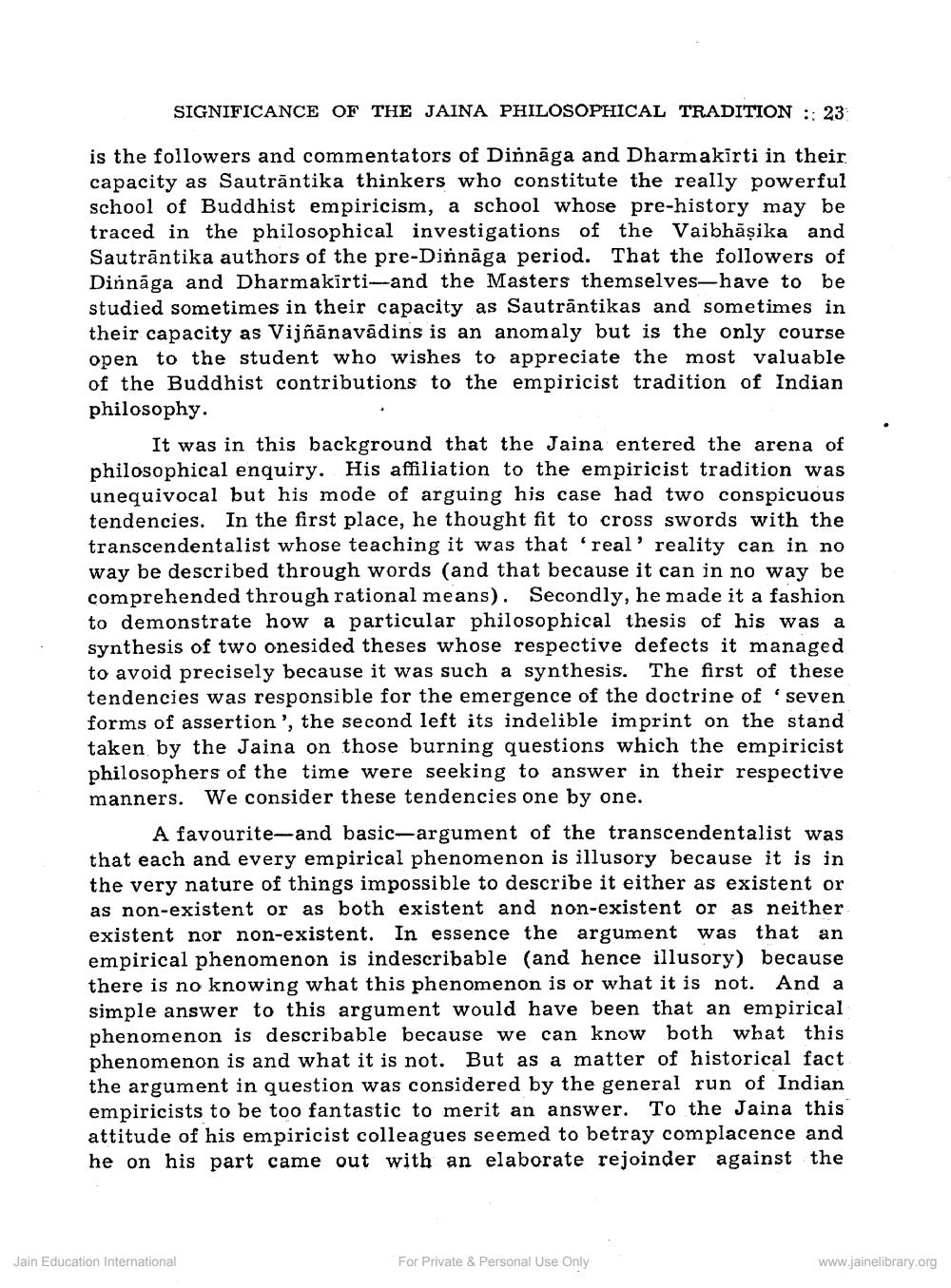Book Title: Logical and Historical Significance of Jaina Philosophical Tradition Author(s): K K Dixit Publisher: Z_Mahavir_Jain_Vidyalay_Suvarna_Mahotsav_Granth_Part_1_012002.pdf and Mahavir_Jain_Vidyalay_Suvarna_ View full book textPage 3
________________ SIGNIFICANCE OF THE JAINA PHILOSOPHICAL TRADITION :: 23 is the followers and commentators of Dinnāga and Dharmakirti in their capacity as Sautrāntika thinkers who constitute the really powerful school of Buddhist empiricism, a school whose pre-history may be traced in the philosophical investigations of the Vaibhāșika and Sautrāntika authors of the pre-Dinnaga period. That the followers of Dinnāga and Dharmakirti--and the Masters themselves-have to be studied sometimes in their capacity as Sautrāntikas and sometimes in their capacity as Vijñānavādins is an anomaly but is the only course open to the student who wishes to appreciate the most valuable of the Buddhist contributions to the empiricist tradition of Indian philosophy. It was in this background that the Jaina entered the arena of philosophical enquiry. His affiliation to the empiricist tradition was unequivocal but his mode of arguing his case had two conspicuous tendencies. In the first place, he thought fit to cross swords with the transcendentalist whose teaching it was that 'real' reality can in no way be described through words (and that because it can in no way be comprehended through rational means). Secondly, he made it a fashion to demonstrate how a particular philosophical thesis of his was a synthesis of two onesided theses whose respective defects it managed to avoid precisely because it was such a synthesis. The first of these tendencies was responsible for the emergence of the doctrine of seven forms of assertion', the second left its indelible imprint on the stand taken by the Jaina on those burning questions which the empiricist philosophers of the time were seeking to answer in their respective manners. We consider these tendencies one by one. A favourite-and basic-argument of the transcendentalist was that each and every empirical phenomenon is illusory because it is in the very nature of things impossible to describe it either as existent or as non-existent or as both existent and non-existent or as neither existent nor non-existent. In essence the argument was that an empirical phenomenon is indescribable (and hence illusory) because there is no knowing what this phenomenon is or what it is not. And a simple answer to this argument would have been that an empirical phenomenon is describable because we can know both what this phenomenon is and what it is not. But as a matter of historical fact the argument in question was considered by the general run of Indian empiricists to be too fantastic to merit an answer. To the Jaina this attitude of his empiricist colleagues seemed to betray complacence and he on his part came out with an elaborate rejoinder against the Jain Education International For Private & Personal Use Only www.jainelibrary.orgPage Navigation
1 2 3 4 5 6 7 8 9
